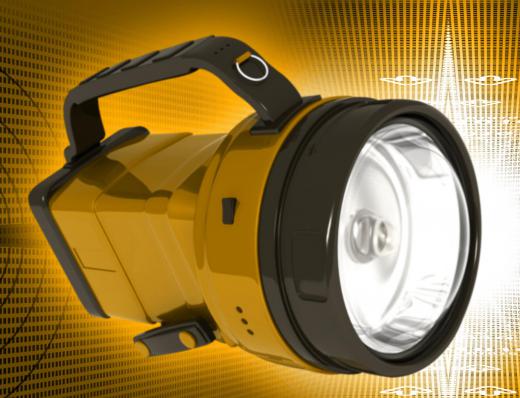Searchlights are powerful lighting equipment that make use of a series of reflectors to create a beam of light that can be precisely trained in a given direction. Developed in the late 19th century, the search light has been utilized in military operations, recovery projects, and even in advertising and entertainment endeavors. Once available only in stationary models, search lights of today are constructed with a series of swivel mechanisms that help to make the device ideal for a wide range of applications.
The secret to searchlights is the powerful beam of light that is emitted by the device. Created by the arrangement of reflectors and combined with a power source, the light is a series of parallel rays that are focused in a common direction. The overall result is a large and united body of light that can be utilized to illuminate a precise area.

Searchlights were first developed for wartime use during the closing years of the 19th century. The initial application is thought to be for spotting small torpedo boats that could menace a larger battleship and often get away undetected. Over time, searchlights became standard equipment on just about every type of seafaring vessel, as the device made it possible to locate and identify all sorts of objects in the dark. As a bonus, the searchlights could also function as powerful beacons for boats traveling through fog. The use of the searchlights in this fashion proved to cut down on the number of boat collisions significantly.

In addition to use in combat and as a safety measure in the water, searchlights also came into common use on land as well. Smaller portable searchlights began to be used for advertising, as well as a means of creating a temporary landmark for a special event. After the invention of the motion picture, searchlights came to be a common staple of the premiere. Several powerful lights would swivel in upward directions, adding even more excitement to the event. For many years, searchlights have been used as an added element for all sorts of public events, such as awards shows, store openings, and large scale holiday celebrations.

One common application of searchlights today is with local law enforcement. A portable searchlight is often part of the standard equipment in any police cruiser, while larger models are often used when there is a need to scan a large area of land in relation to a search. The searchlights may be used at ground level, or attached to helicopters or small planes as part of an aerial search of the terrain.

